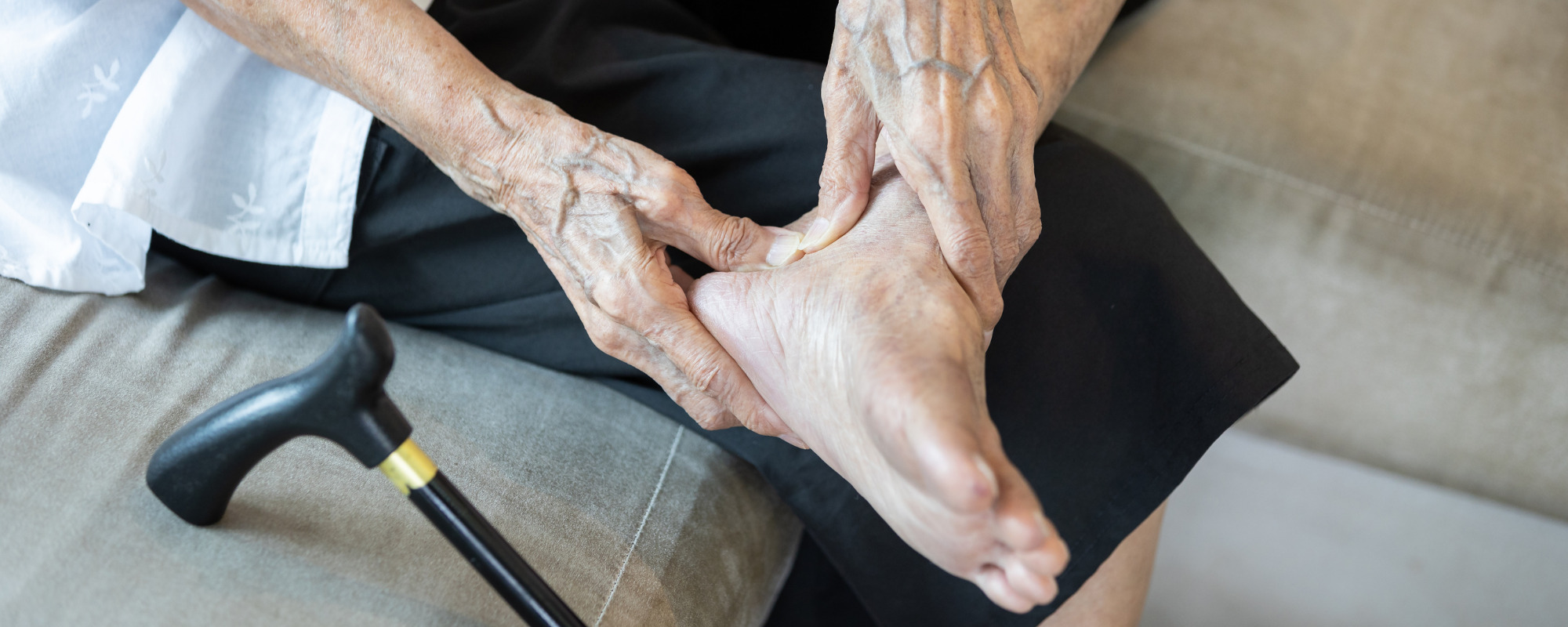“Get it looked at before you are worried about it.”
What does this have to do with your feet? A little bit of swelling or small wound that isn’t healing may not seem like a big deal, but Janice McNeil and Kate Miner, two Primary Care Registered Nurses (RNs) with the Edmonton Southside Primary Care Network (ESPCN) know the value of getting these small concerns looked at sooner rather than later. Early intervention with foot and lower leg concerns can have a positive effect on your entire body. Bunions, calluses, edema, or other foot and lower leg issues may change the way you stand or walk, which can lead to pain in other joints such as your knees, hips, or back. Bringing these concerns to your health care team early can help you avoid serious risks to your health through early intervention and specialized care, such as visiting the Lower Leg Assessment Clinic (LLAC).
What is the Lower Leg Assessment Clinic?
The LLAC, which operates out of the ESPCN Central Office, is a program designed to help patients with lower leg conditions, wound management, and foot health issues. The LLAC is a specialized clinic that provides prevention and treatment for lower leg swelling and wounds, high risk feet, and other concerns. Many patients visit this clinic because they are experiencing reduced mobility or other foot conditions like hammer toes, bunions, or crossed toes. Sometimes these concerns are also linked to chronic conditions like diabetes.
Primary care providers and registered nurses can treat a variety of lower leg problems within their offices, but staff at the LLAC can enhance the treatment that you might already be receiving. The LLAC staff have in-depth knowledge in complex wound care and other foot and lower leg issues and can help create treatment plans to ensure you get the care that you need.
The LLAC is open to referrals from all ESPCN member physicians. Bridget Schick, one of the Primary Care RNs at this clinic, specializes in lower leg care including complex wound care. Schick’s specific training in wound care is essential in helping patients manage their health, and with her expertise in the realm of foot and lower leg care she can connect patients to other health care services and professionals as needed. As a Certified Lymphedema Therapist, Schick can offer specialized treatment options for patients with lower leg lymphedema, which includes authorizing AADL lymphedema treatment products.
“Bridget has specialty wound experience,” says Kate, “She knows what to do, where to send her patients, and who needs to see them.”
Schick was joined by Sheryl Brien in 2023. Brien is an RN with special training in would care, edema, and chronic disease management. To further support patients who are referred to the LLAC, Brien is working on her Canadian Footcare Nurse designation. This training gives Brien additional expertise in foot conditions and treatment options, especially to support patients with diabetes.
Benefits of Early Intervention
The LLAC can help you access tools like canes, walkers, compression stockings, and Alberta Aids to Daily Living (AADL) funding as needed. However, with early intervention, the LLAC can also stop or delay your need for these aids through specialized care and education. With early intervention, the LLAC team can prevent or delay the need for specialized aids through care and education.
No foot or lower leg concern is too small to talk about with your primary care provider. Although it may seem like small issues such as bunions, calluses, and edema only affect your feet, they may eventually impact your entire body. Any pain, wounds, or swelling that impact the way you stand, or your ability move around may eventually lead to issues in other parts of your body. This may cause daily tasks like cooking or walking to become painful. Early intervention is the key to making sure your foot and lower leg issues don’t impact your overall health. The LLAC and your primary health care team can work with you on a preventative or early care plan to help you continue to do the things that are important to you.
Although early intervention is ideal, any intervention is best. If you are experiencing issues with your feet or lower legs, make an appointment with your primary care provider to talk about your concerns and potentially getting a referral to the LLAC.
Comprehensive Care
Your care at the LLAC goes beyond the walls of the ESPCN central office building. LLAC staff will communicate your care plan with your primary health care team to make sure you get the ongoing support that you need to put your best foot forward. The LLAC can take care of your feet while your medical team (like your family doctor’s office) work with the LLAC to develop a plan for your overall health.
Appointments at the LLAC are both free and generally quick to access with a referral from your ESPCN family physician. Whether the LLAC is your final step for receiving specialized care, or one piece of the puzzle in a larger picture of treatment, anyone in need of foot or lower leg care can benefit from these services.
When Should I Talk to my Doctor?
If you have any concerns about your feet or lower legs, do not hesitate to speak with your family doctor. Your concerns may include signs of:
- Edema
- Healed or open venous ulcers
- Intermittent claudication (pain in your leg muscles while walking that goes away while resting)
- Dependent rubor (red/purple discolouration to feet when your feet are not elevated)
- Compromised circulation (cool/cold feet may be a sign of this)
- Wounds that appear on your feet without an injury
- Loss of sensation
- Foot deformities (bunions, hammer toes, crossed toes, etc.)
- Slow healing wounds
- Wounds on any weight-bearing part of your foot
